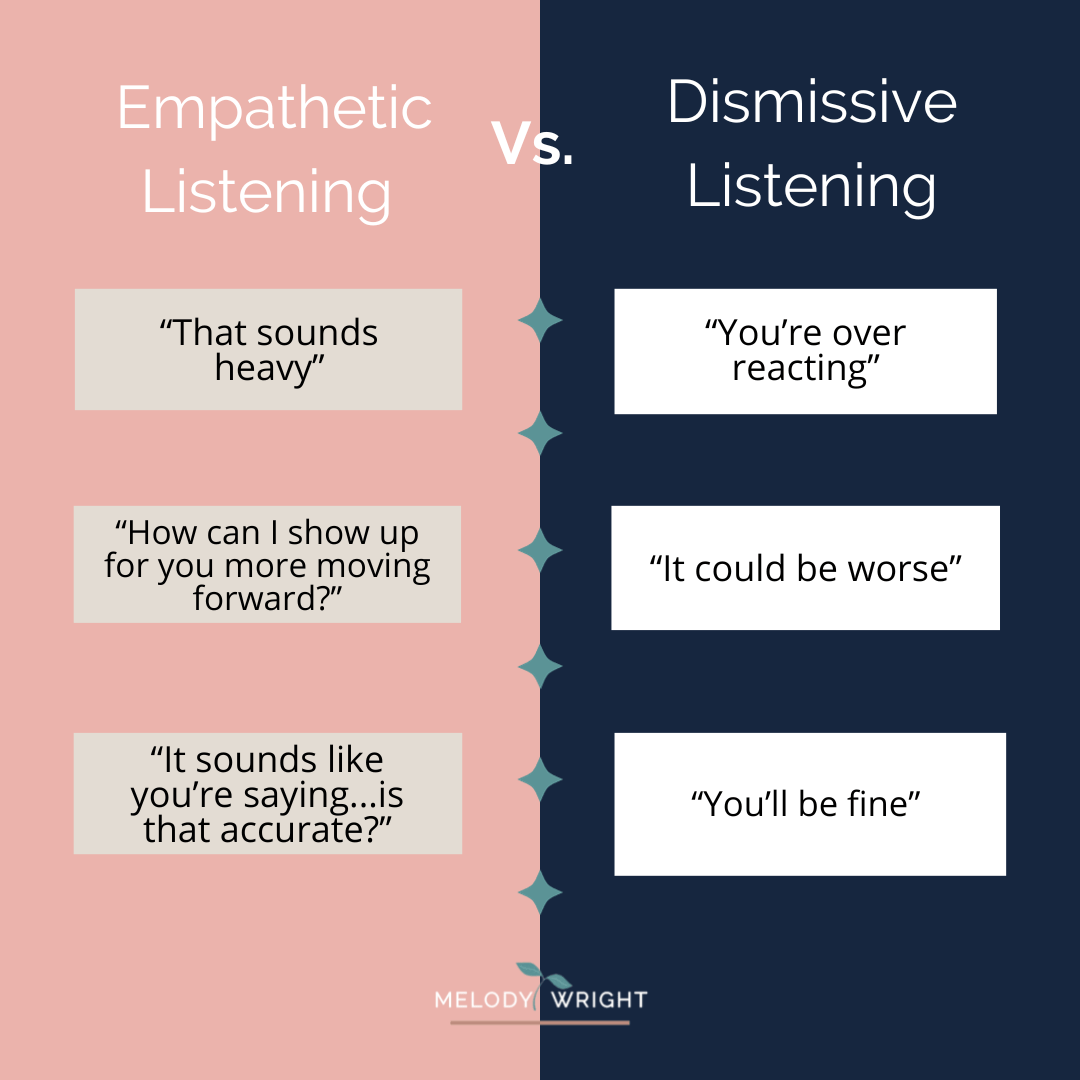11 Ways to Support an Anxious Partner
By Melody Wright, LMFT In the complex dynamics of relationships, we might find ourselves stepping into roles that require not just love and companionship but also patience, understanding, and support. If your partner struggles with anxiety, it might feel like you both are navigating through rough seas, where every wave of worry and fear has the potential to disrupt the stability of your relationship. Anxiety comes in various forms and it can cast a shadow over even the brightest moments you both share, leaving both partners feeling isolated and uncertain.
However, even in relationships where anxiety is present, there lies an opportunity for deeper connection and growth. By learning how to support your partner with their anxiety effectively, you not only have the ability to strengthen the foundation of your relationship but also foster an environment of trust, empathy, and resilience. In this blog, we'll discuss ten ways to support your partner through their anxiety by focusing on understanding and kindness.
Supporting Your Partner
Supporting an anxious partner requires patience, empathy, and a genuine desire to comfort and encourage them. It means understanding their anxiety deeply and being there to provide comfort when they're feeling distressed. Patience helps you navigate their emotions gently, while empathy allows you to connect with their inner feelings of fear and worry. Most importantly, it involves a strong commitment to stand by their side, offering reassurance through all the challenges they face. But how can you do this?
1. Ground Yourself
To be present, listen, and have empathy for your partner you need to find ways to ground yourself before attempting. For those who experience anxiety, it can creep up suddenly, so being prepared to regulate yourself is essential to supporting your partner through it. You can support yourself with daily meditation, self-care practices, and deep breathing.
2. Engage in Active Listening
It’s important to encourage your partner to express their feelings and concerns. However, as you listen it’s also important to show empathy and understanding by actively listening to what they have to say and holding a non-judgmental space for them. Here's a brief example of active listening in a relationship:
Your Partner: "I had a really tough day at work. My boss criticized my project in front of the whole team."
You: "That sounds really challenging. It must have been frustrating to receive criticism like that. How did you handle it?
In this example, you are actively listening to your partner’s experience, acknowledging their feelings, and encouraging further discussion by asking an open-ended question.
3. Validate Their Feelings
As you engage in active listening let your partner know that it's okay to feel anxious and that their feelings are valid. Be aware to avoid dismissing or minimizing their emotions.
4. Offer Reassurance
Provide verbal reassurance that you are there for them and that they are not alone in dealing with their anxiety. Remind them of their strengths and previous successes in managing anxiety.
5. Educate Yourself About Anxiety
Learning about anxiety disorders, their symptoms, and their triggers will only give you a deeper understanding of what your partner is going through and can help you provide better support.
6. Encourage Self-Care
For those who experience anxiety, their nervous systems can become dysregulated easily. Help your partner prioritize self-care activities such as exercise, proper nutrition, sufficient sleep, and relaxation techniques like deep breathing or meditation. This is important for nervous system regulation and reducing anxiety episodes.
7. Be Patient and Understanding
Recognize that anxiety can be overwhelming and may affect your partner's behavior and mood. Be patient with them and try to remain calm during moments of heightened anxiety.
8. Avoid Criticism
Do your best to refrain from criticizing or blaming your partner for their anxiety. Instead, focus on offering constructive feedback and support.
9. Encourage Professional Help
You might suggest seeking help from a therapist or counselor who specializes in treating anxiety disorders. Your partner might feel supported if you offer to accompany them to their therapy sessions.
10. Practice Mindfulness Together
Engage in activities that promote mindfulness, such as yoga or guided meditation. These practices can help both of you manage stress and anxiety more effectively and cultivate a deeper relationship with each other.
11. Maintain Open Communication
Encourage open and honest communication in your relationship. Check-in with your partner regularly to see how they're feeling and what support they may need. Let them know that they can always come to you for help and guidance.
Final Thoughts
We understand that every relationship is unique, and navigating their complexities can be challenging. If you find yourself needing support, whether due to communication breakdowns, trust issues, or simply needing someone to talk to, consider speaking with a skilled clinician. Your well-being directly impacts your relationship's health. Reach out to us today for the support you deserve. You can CLICK HERE to schedule a free phone consultation.
Affirmations for Anxiety
I am calm, centered, and in control of my thoughts and emotions.
I trust in my ability to overcome challenges and face uncertainty with courage.
I am worthy of peace and relaxation, and I deserve to prioritize my mental well-being.
I release all tension and fear from my mind and body, allowing tranquility to flow through me.
I am safe and secure in this present moment, and I trust in the journey ahead.
Additional Resources
**If you’re interested in expanding your knowledge on anxiety and how to support someone with anxiety, check out these books below




